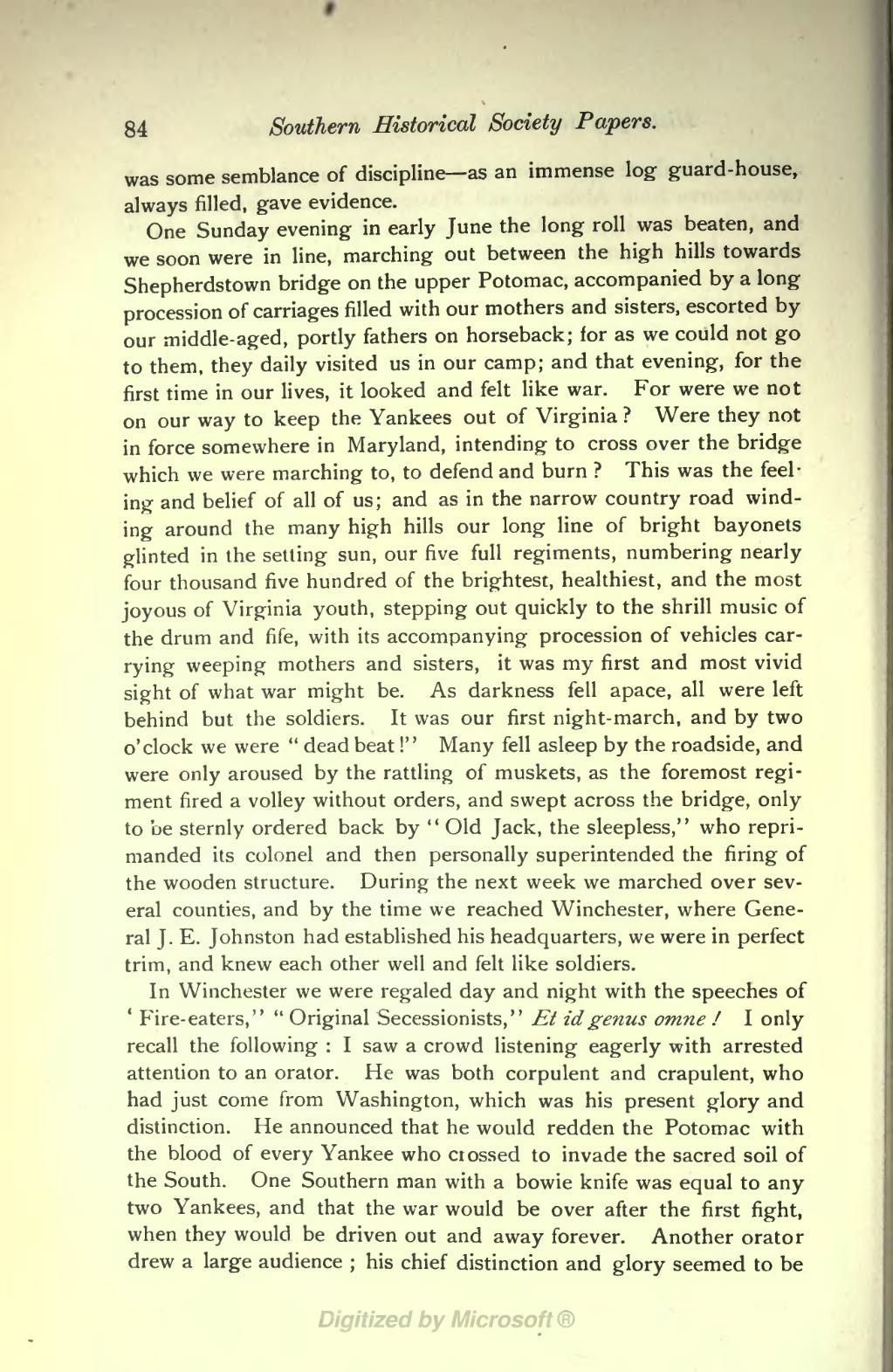84 Southern Historical Society Papers.
was some semblance of discipline as an immense log: guard-house, always filled, gave evidence.
One Sunday evening in early June the long roll was beaten, and we soon were in line, marching out between the high hills towards Shepherdstown bridge on the upper Potomac, accompanied by a long procession of carriages rilled with our mothers and sisters, escorted by our middle-aged, portly fathers on horseback; for as we could not go to them, they daily visited us in our camp; and that evening, for the first time in our lives, it looked and felt like war. For were we not on our way to keep the Yankees out of Virginia ? Were they not in force somewhere in Maryland, intending to cross over the bridge which we were marching to, to defend and burn ? This was the feel- ing and belief of all of us; and as in the narrow country road wind- ing around the many high hills our long line of bright bayonets glinted in the setting sun, our five full regiments, numbering nearly four thousand five hundred of the brightest, healthiest, and the most joyous of Virginia youth, stepping out quickly to the shrill music of the drum and fife, with its accompanying procession of vehicles car- rying weeping mothers and sisters, it was my first and most vivid sight of what war might be. As darkness fell apace, all were left behind but the soldiers. It was our first night-march, and by two o'clock we were " dead beat !" Many fell asleep by the roadside, and were only aroused by the rattling of muskets, as the foremost regi- ment fired a volley without orders, and swept across the bridge, only to be sternly ordered back by " Old Jack, the sleepless," who repri- manded its colonel and then personally superintended the firing of the wooden structure. During the next week we marched over sev- eral counties, and by the time we reached Winchester, where Gene- ral J. E. Johnston had established his headquarters, we were in perfect trim, and knew each other well and felt like soldiers.
In Winchester we were regaled day and night with the speeches of 1 Fire-eaters," " Original Secessionists," Et id genus omne ! I only recall the following : I saw a crowd listening eagerly with arrested attention to an orator. He was both corpulent and crapulent, who had just come from Washington, which was his present glory and distinction. He announced that he would redden the Potomac with the blood of every Yankee who crossed to invade the sacred soil of the South. One Southern man with a bowie knife was equal to any two Yankees, and that the war would be over after the first fight, when they would be driven out and away forever. Another orator drew a large audience ; his chief distinction and glory seemed to be
